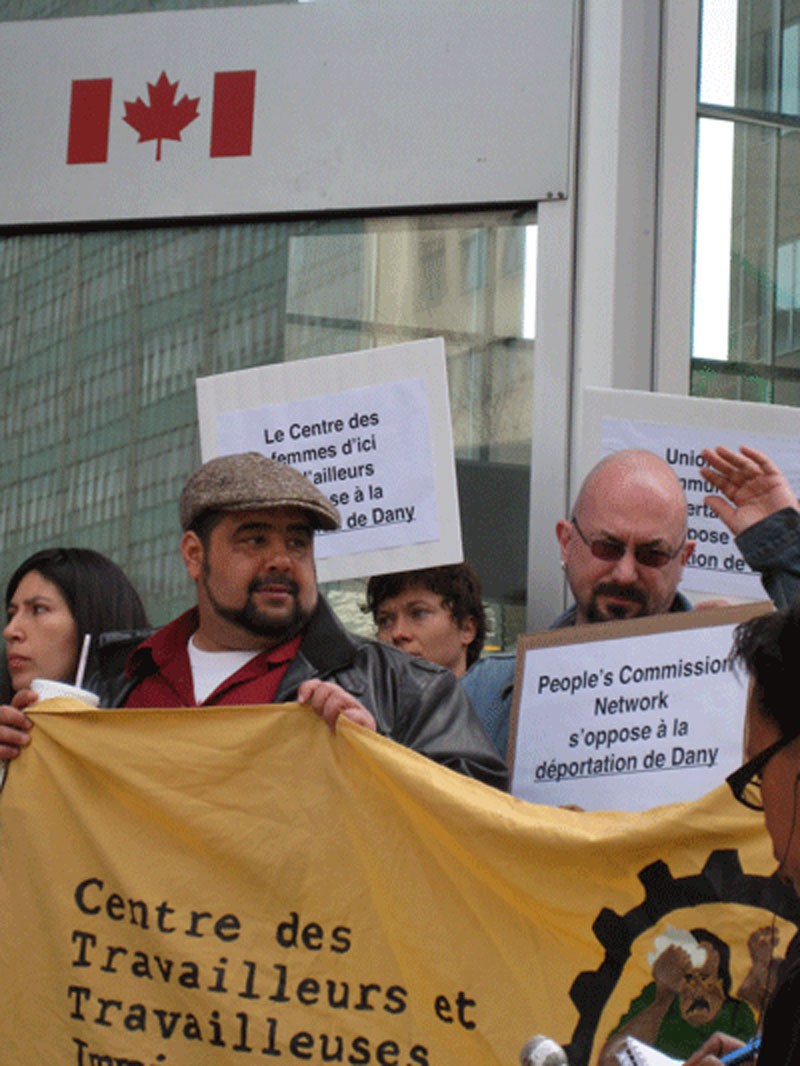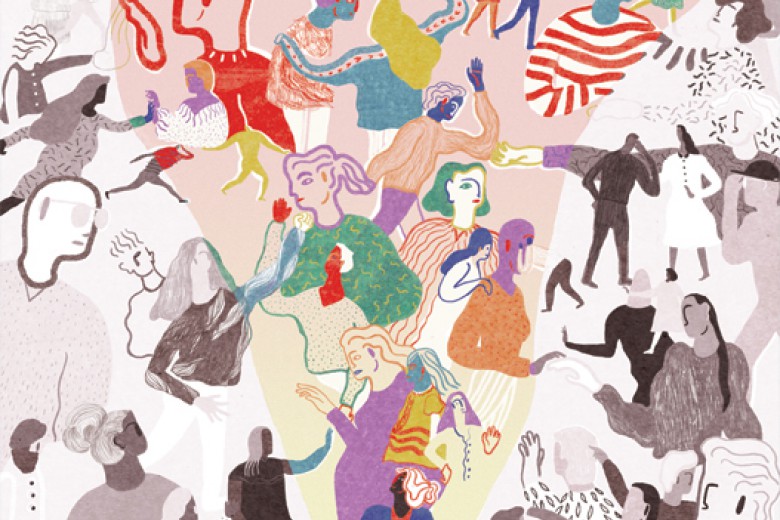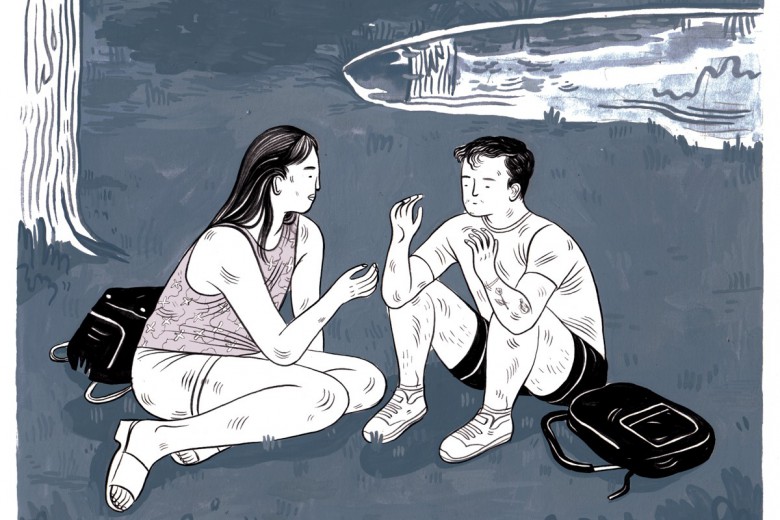
Imagine you were born in Honduras and spent your childhood days on the dusty streets of Tegucigalpa. When you’re 12, you and your parents emigrate to Canada. You’re granted permanent residency and the stability it offers. By the time you’re 20, Canada is home and Honduras a distant memory.
But permanent residency in Canada is not necessarily permanent. According to the current Immigration and Refugee Protection Act, which came into effect in 2002, if permanent residents are implicated in “serious criminality” or sentenced to six months or more in prison, they may be deported to their country of origin, regardless of the length of time they’ve lived in Canada.
Jaggi Singh, a Montreal-based migrant rights organizer, says that this measure amounts to “double punishment,” since a permanent resident convicted of a crime is penalized once through the justice system and then again through the immigration system, with immigration officials weighing in on issues of criminality that have already been addressed within the judicial system. But whereas the courts dictate that a person cannot be tried twice for the same crime – a legal concept known as double jeopardy – no such principle protects immigrants from similar double punishment.
Simply put, the inadmissibility provision in the Immigration and Refugee Protection Act that allows permanent residents to be stripped of their status based on criminality amounts to double jeopardy specifically for migrants. “If someone is accused of something, charge them. Put them on trial. There are policies and procedures in place for this,” Singh says. He considers the revocation of permanent residency an “extra measure steeped in racism and discriminatory attitudes towards migrants.”
Singh is part of No One Is Illegal-Montreal and Solidarity Across Borders, groups that organize around demands for status for all non-status persons as well as an end to deportations and detentions. In Montreal, organizing against double punishment has become a primary focus of late.
Dany Villanueva, a 24-year-old Honduran-born Quebecer, has experienced first-hand the double punishment of the Immigration and Refugee Protection Act’s inadmissibility provisions. Villanueva, who served an 11-month prison sentence in 2006 for armed robbery and faces another pending charge, is being threatened with revocation of his permanent residency. On April 21, Villanueva was given a removal order at an Immigration and Refugee Board hearing which, if enforced, would see him sent back to a country he left 12 years ago, when he was still a preteen. The order comes four years after Villanueva was convicted of his criminal charges, crimes for which he already served his prison sentence, and less than two years after his brother, Fredy Villanueva, was shot dead by officer Jean-Loup Lapointe of the Montreal police in an incident that is still under investigation.
Dany Villanueva is currently a key witness for the public inquiry into the killing of his unarmed, 18-year-old brother in a public park on August 9, 2008. He has also been described in the media as a gang member, although he insists he hasn’t been involved with gangs since his release from jail.
After Villanueva’s April hearing before the Immigration and Refugee Board, which lasted only five minutes before his removal order was handed down, Villanueva’s lawyer, Stéphane Handfield, told reporters that the four-year lapse between Villanueva’s conviction and deportation order was an “unreasonable delay.” Handfield said the timing of Villanueva’s deportation order – which came in the midst of the public inquiry into his brother’s death at which Dany was testifying – was an “odd coincidence.”
A written statement issued by an ad hoc Montreal-based support group for the Villanuevas, handed out outside the hearing, was less circumspect. “That these procedures are happening so many years later suggests that it is a blatant attempt by the [Canadian Border Services Agency] to meddle in the public inquiry.”
The support group’s declaration claims that “the removal proceedings also serve to increase the stress on Dany and his family, who must concentrate not just on the coroner’s inquest into Fredy’s death, but also the potential threat of a deportation to Honduras.” The Villanuevas have declined media comment.
The campaign against double punishment, or the misuse of the immigration system to address criminal behaviour, is growing in Montreal, with public support for the Villanuevas from groups such as No One is Illegal, Solidarity Across Borders, the Immigrant Workers Centre, the Fédération des Femmes du Québec and the local youth organization Head and Hands. Groups opposed to double punishment have also emerged in Toronto and Vancouver, in the U.K. and across the U.S., where similar deportation provisions exist. In response to the negative impact these kinds of deportations were having on immigrant communities in California, in 2004 the Oakland youth group Asian/Pacific Islander Youth Promoting Advocacy and Leadership hosted a rally declaring their communities “deportation free.”
There are, in practice, no deportation-free zones in Montreal. In fact, some areas are more prone to this trend than others. On an unseasonably warm April afternoon I visited the community organization Maison d’Haïti in the St. Michel area of Montreal. Kids from the after-school program were mingling in the hallway. A couple of men waited to speak to staff about immigration, and colourful murals of Haiti and the Caribbean Sea stretched down the hallway. Marjorie Villefrance, a community worker at the Maison d’Haiti, told me that the Haitian community is particularly familiar with the deportation of residents due to criminality, as they are “overrepresented” in Canadian courts and prisons.
Villefrance says that to understand criminality among immigrant populations from a holistic perspective, we have to take into account the circumstances that immigrant youth may find themselves in and the pressures they may face. As in the Villanueva case, Villefrance says that when youth are accused of “serious criminality,” the reality is often more complex than it may seem.
Immigrant youth are most often subject to deportation based on the Immigration and Refugee Protection Act’s inadmissibility provision, she explains, and not because they are more likely to engage in criminal activity. Rather, it’s because they are often targets of street-gang stereotypes and racial profiling.
As I was interviewing Villefrance in the waiting room of Maison d’Haïti, a Haitian man who was waiting to meet with staff about immigration spoke up to voice his opinion on racial profiling. He said that when youth of colour are stopped and questioned, they are often provoked by the police, which in turn elicits an impulsive reaction from the youth. “Then,” he explained, “there may be grounds for a criminal charge.”
In a 2008 study published by the Centre de recherche de Montréal sur les inégalités sociales and les discriminations (CREMIS), a research organization affiliated with the University of Montreal and the University of Québec at Montreal, researchers Léonel Bernard and Christopher McAll report that black youth in Montreal are at least twice as likely to be stopped by the police as white youth.
According to the CREMIS study, black youth are also less likely to access a lawyer. And Villefrance explains that even if they do consult a lawyer, when there is a lack of understanding of Canada’s judicial system and few resources to access trustworthy legal advice there are myriad opportunities for a small criminal charge – or a case of racial profiling – to escalate from arrest to deportation.
Regardless of whether one agrees with permanent residents staying in Canada despite serious criminality for which they have done jail time, the fact remains that residents of Canada may be sent to places they barely remember. More often than not, these deportations are of youth who have been raised in Canada and may know very little about their country of origin.
Villefrance argues that deportation just displaces the problem. “The biggest fault with this strategy” she says, “is the fact that rich countries with so many resources are deporting youth to countries with very few resources to deal with it.” Rehabilitation for these youth then, is invariably non-existent.
At a time when drastic changes to the Immigration and Refugee Protection Act are imminent, with Bill C-11 seeking to limit who can access Canada’s refugee system, let alone succeed in it, Villefrance’s words ring clear: “I don’t see any justice in these kinds of deportations.”
Villefrance says that the injustice of these deportations needs to be addressed. “We send youth away who need support. We send them to places where there aren’t the resources for this support. So, we send them to die.”
There has been a moratorium on deportations to Haiti for the past several years but, until the January 2010 earthquake, this moratorium did not apply to those who were deemed serious criminals or members of street gangs. This means that before the quake, youth were being sent back to a country the Canadian government explicitly deemed unsafe. Now, no one is being deported to Haiti, but Ville-France has doubts as to how long this will last.
The political instability and gang violence in Honduras, meanwhile, have not impeded the removal order for Dany Villanueva. Handfield has said that the family plans to appeal the current removal order. If the first appeal is unsuccessful, the decision may be taken to federal court. And, as Singh told reporters outside the hearing, “this is just the beginning of the fight.”


_780_520_90_s_c1.jpg)



